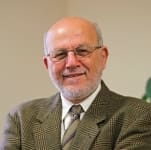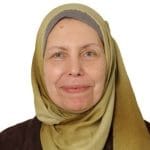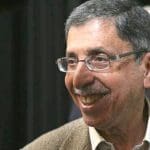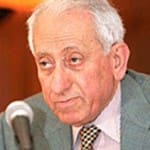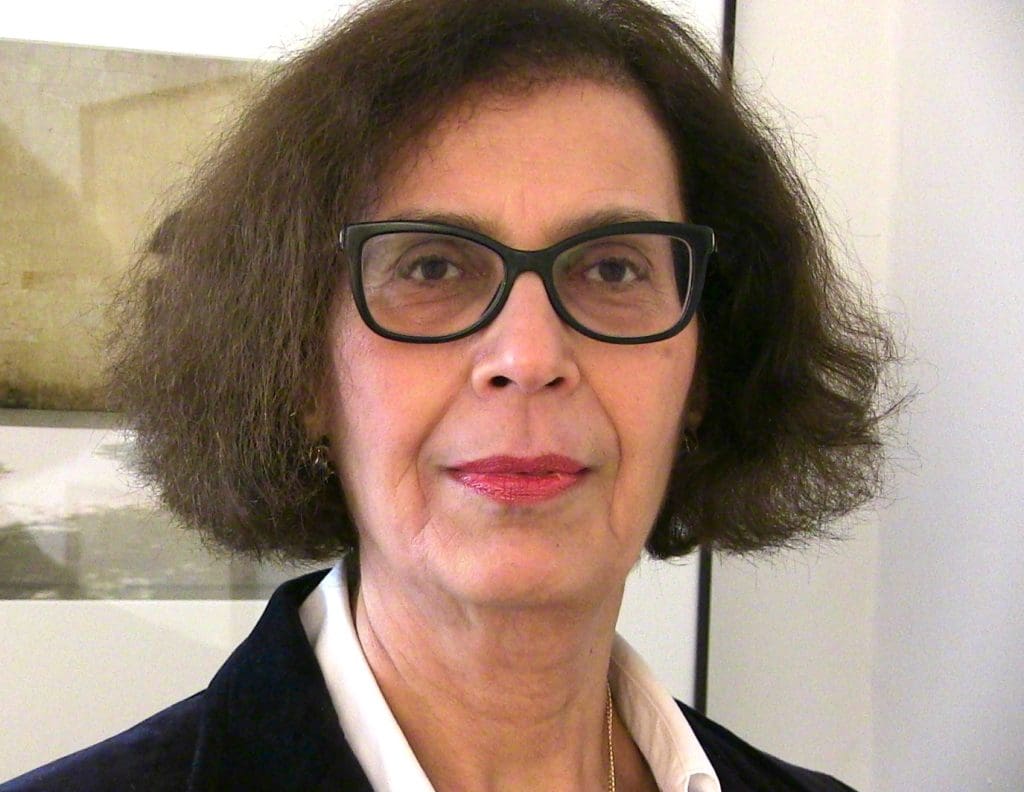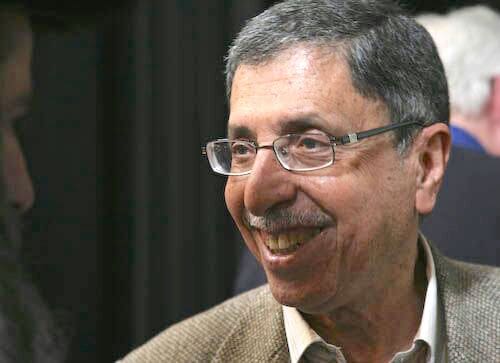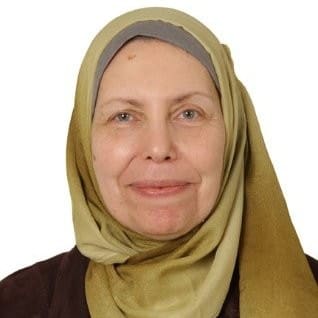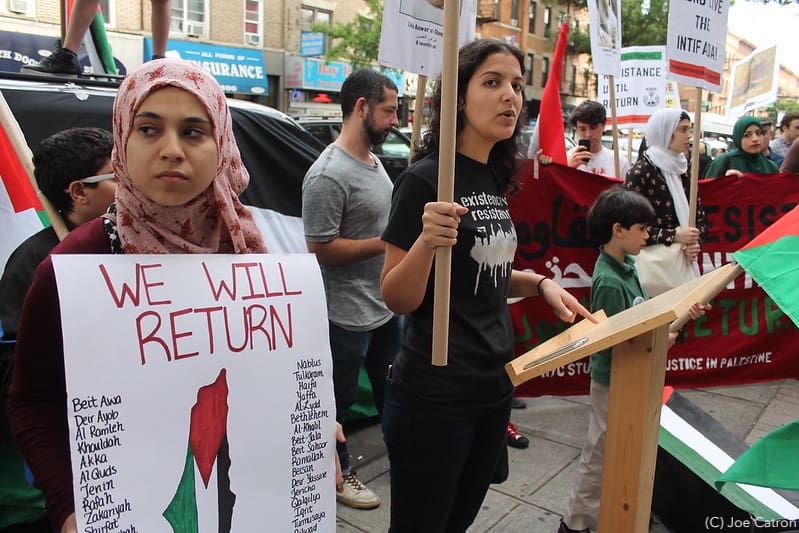
Al-Shabaka took advantage of the presence of several policy advisors in Beirut, Lebanon, to organize an informal roundtable in May 2010, the highlights of which are summarized below. The topic for discussion was: What are the interests of the Palestinians in the countries where they live in the Diaspora, and what is their role in securing their interests? The discussion was based on the assumption that there will be no resolution of the conflict in the near future. A different assumption – for example, the imposition of a resolution that excludes the right of return – would have resulted in a different discussion that focused on how to block any solution that did not realize the rights of refugees. The roundtable participants are aware that their forum only scratched the surface of a very important topic that will continue to be discussed.
Participants include Nadia Hijab, writer and development consultant (facilitator); Khalil Hindi, associate dean of the American University of Beirut’s business school; Jaber Suleiman, founder and director of the Centre for Refugee Rights (Aidoun); Aziza Khalidi, assistant professor in hospital management at the Islamic University of Lebanon and an independent researcher with a principal focus on health and socioeconomic conditions of Palestinian refugees in Lebanon; and Antoine Zahlan, author and science policy expert. The countries in which they live or have lived include: France, Iraq, Jordan, Lebanon, Palestine, Qatar, the United Kingdom, and the United States.
A Question of Community
Palestinian interests in the Diaspora and their role in securing them differs from one country to another. In some Arab and non-Arab countries Palestinians are a distinct community while in others it may not be in the Palestinians’ interest to define themselves as a community. In Lebanon, for example, there is no question that the Palestinians are and consider themselves to be a community. The question then becomes of how to secure their interests as a community, whether through negotiations with the Lebanese government or activism including by forming pressure groups with Lebanese groups that are allies.
By contrast in Jordan, questions may arise as to whether it is in the Palestinian interest to present themselves as a community; many are still dealing with the trauma of Black September 1970.[fn]In September 1970, King Hussein of Jordan moved to crush Palestinian guerrilla groups which were operating within the country. Thousands of people were killed and clashes continued until July 1971. During this period and after an Egyptian-negotiated cease-fire, the Palestine Liberation Organization and thousands of Palestinian fighters were expelled to Lebanon.[/fn] For years, large segments of the community have presented themselves as Jordanians and have struggled for rights as Jordanians, although registered refugees kept their legal status so as to maintain their right to return. In other parts of the Arab world, such as the Gulf, it is even more of a question whether it is in the Palestinian interest to present themselves as a community.
In the U.K. and the U.S. Palestinians established community groups. However, they were challenged at different times by the same kind of factional politics that exist “back home.” It should be noted that this is a natural aspect of Diaspora behavior. Diasporas are informal groupings of people that claim a relationship to a country or civilization, and they do not necessarily need to be structured in well-defined organizations. It is also natural that when Diasporas emerge they will include antagonistic groups who aim to achieve different objectives. In any case, in neither country have Palestinian organizations or community groups been able to build or leverage the same influence that Zionist groups have done.
It is not helpful to claim that one Palestinian Diaspora community is worse off than the others. Each has its own challenges to face, such as the Palestinians in Iraq or those in Egypt. Then there are large numbers of Palestinian refugees in both the Gaza Strip and the West Bank, so the question becomes: How does one define the Palestinian Diaspora as it does not only include those living outside the land of historic Palestine. Wherever they are, Palestinians face two problems, one immediate and the other longer term – al-Awda (return) and survival. Each of these problems requires different strategies.
Learning from the Lebanon Experience
The Palestinians in Lebanon face an uncertain future. They are treated as foreigners yet they do not enjoy the rights to which refugees are entitled under international law, which is a violation of the Lebanon’s obligations as a party to several international conventions relating to refugee rights as well as a member state of the Arab League, which adopted the Casablanca Protocol on the treatment of Palestinian refugees in 1965. There has been a positive shift in the Lebanese political discourse since 2005, but little has changed on the ground with respect to basic human rights, in particular the right to work and to property, and restrictions remain on activities in several areas, including bringing building materials into the refugee camps and access to government schools. Moreover, the reconstruction of Nahr al-Bared camp is still incomplete and the plight of its displaced population remains.
How should the Palestinian community act itself within this political context? It should struggle for more basic human – not only humanitarian – rights, and seek a harmonization of Lebanese legislation with international standards and norms. At another level, it should link the struggle for basic human rights with the right of return. Indeed, the former would empower the community to work for the latter and there should be no fear that extending more human rights to the Palestinians would result in tawtīn (naturalization). The most effective way for Lebanon to support the right of return and prevent tawtīn would be to support refugee basic human rights.
Another question is: What kind of referential authority exists for Palestinians in Lebanon? Is the Palestine Liberation Organization still representative? At the moment, popular committees representing different factions are running the show. The traditional Palestinian factions have a stranglehold over the community and in the name of “bigger issues” neglect direct community interests while at the same time diverting energies into factional struggles. These factional divides have hampered the community’s ability to advocate its rights. And what is the role of civil society? In fact, to what extent is the civil society “civil?” Palestinians in Lebanon can’t afford the Jordanian approach where elites run non-governmental organizations (NGOs). NGOs are dependent on donor funding. They tailor their programs to secure such funding, and this leads to vertical development rather than community empowerment. How can the community have independence in funding?
The Palestinian community in Lebanon is very disenchanted. People most of all want to survive and to live in a dignified manner. Families send their children to Europe to get married and send back remittances. Some segments of the population are marginalized even where civil society is active. For example a research project revealed the extent to which the elderly are marginalized, even though they have experience and knowledge. The elderly are perceived as people who need care and who tell stories about the old country rather than people who are able to contribute and this robs the community of a key human resource. Survival and social participation are the key issues.
There are also untapped resources and many possibilities for private initiatives and entrepreneurships. Although everyone is interested in politics, it also doesn’t seem to lead to anything positive. There is no need to live in misery to secure political rights and the right of return. Meanwhile, most campaigns for rights are focusing on the rights to work and health but education is falling by the wayside. The pass rate in the pre-baccalaureate is 33% in Sidon and there are many dropouts. The new generation is growing up ignorant, not just in formal education, but also about Palestinian history. During the 1970s, the PLO insisted on the inclusion of books about Palestinian geography and history in the curriculum of UNRWA (the UN Refugee and Works Agency). Now the only place where youngsters learn about Palestine is in kindergartens and by participating in youth programs and activities, all of which are run by NGOs.
Proposing Ideas for Action
It is important to create networks within and across Palestinian communities and there are experiences that can be tapped and nurtured such as the right of return movement that began to be formed in the mid-1990s in the refugee camps of the West Bank. Since the landmark right of return conference in Boston, U.S. in 2000, the Right of Return movement has met every year.
Much more use can be made of the Internet to support social and community networking. For example, people living within and outside Lebanon established a network of support for the population of the Nahr al-Bared refugee camp. The network is a social group that also provides updates about stages of reconstruction and is useful as an advocacy and rallying tool for everyone interested in the issue and wanting to help. Social networks and other Internet tools can also be used to support entrepreneurship and provide business outlets as well as space for advertising. Such networks can be very diversified and informal: The key is to promote human relations between members of the community, enabling Palestinians to overcome obstacles to their national development by making friend, collaborating on business endeavors, and getting married.
It also vital to forge alliances with host communities, not only seeking their support for the Palestinian struggle but also supporting their own struggles. In Lebanon, for example, several Lebanese NGOs are backing the Palestinians’ right to work campaign while Palestinian NGOs are supporting Lebanese efforts to reform the country’s personal status code. Palestinians and Lebanese are coming together to support popular education and literacy programs that not only provide knowledge but also build a sense of identity and community. The bonds of a Diaspora are not against the host country and Palestinians can be – and are – good citizens wherever they are.
It is worth looking into the creation of serious professional societies of engineers, scientists, doctors, and others, and getting away from the unfortunate tendency in the Palestinian movement to politicize everything. This would have many advantages such as building up knowledge, supporting education, and facilitating linkages with host communities. The biggest long-term challenge is to establish open and effective communications between Palestinians in different locations, especially between those in Palestine and Arab countries. The best to preserve the collective Palestinian identity is increase cultural exchanges between these communities. Without a vibrant Diaspora, there will be no return.







